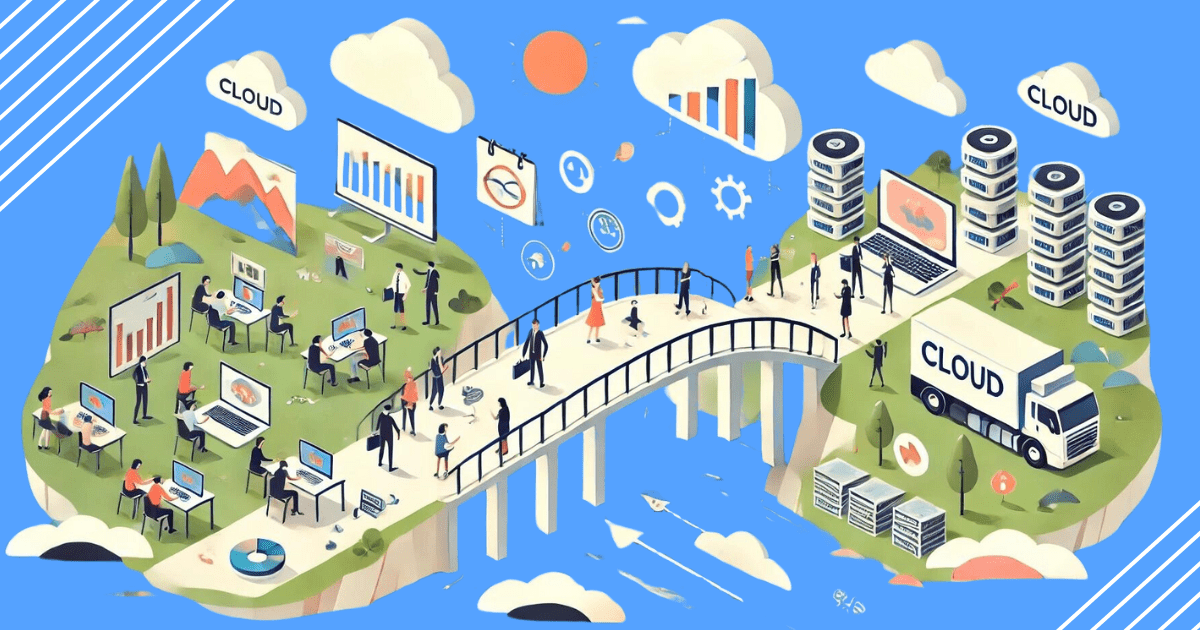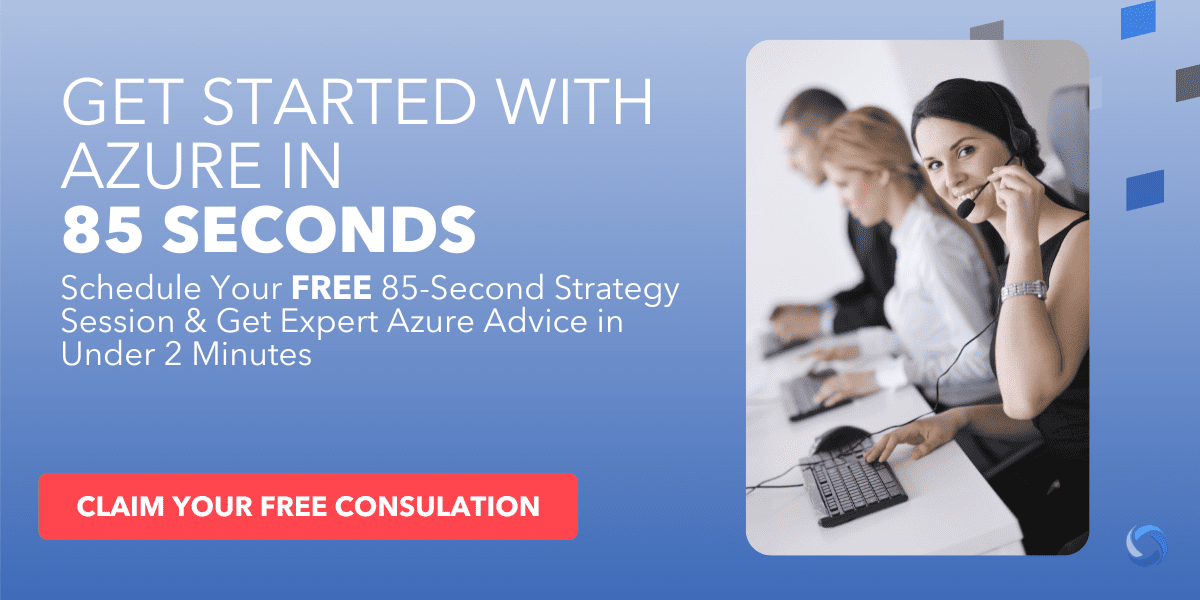Countless SMBs are adopting Microsoft Azure due to its versatility and high-end structure. Yet, as Azure adoption skyrockets, so does the gap in skills needed to manage the Azure migration effectively.
And as businesses strive to harness the power of Azure for expansion and scalability, bridging these skills gaps becomes paramount. Join us as we explore the challenges businesses face and overcome in Azure cloud migration and the importance of preparing your team to navigate this complex landscape.
Why Proper Skills are Crucial for Azure Migration
Azure migration is a complex process that requires a deep understanding of cloud computing principles and specific expertise in Azure services. And understanding what you’re up against is fundamental to approaching this process effectively.
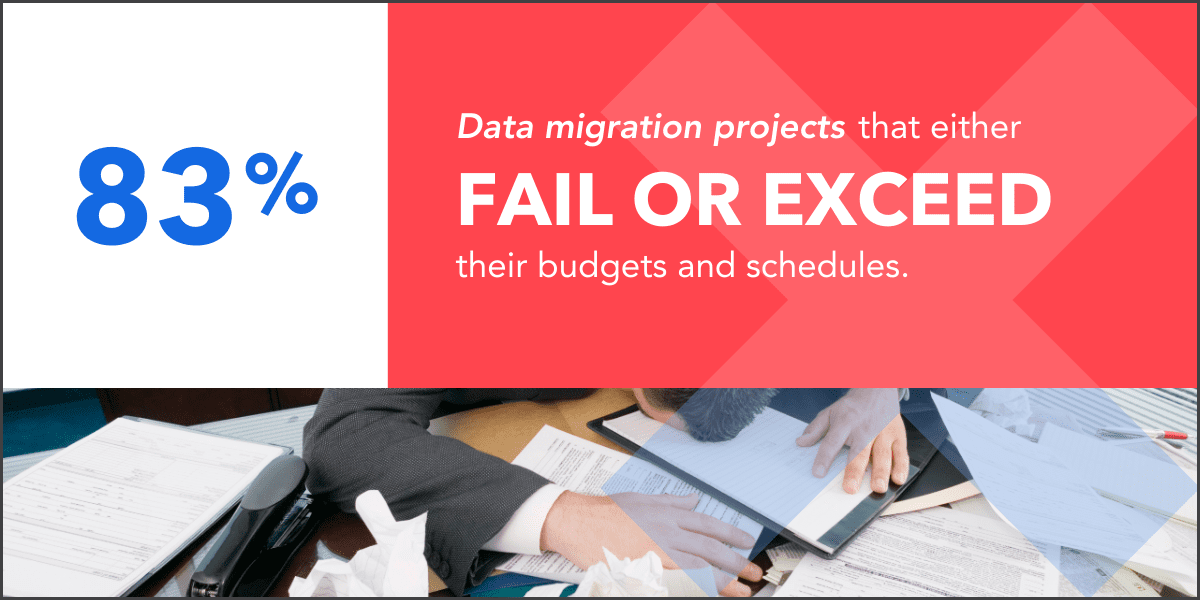
For this reason, the right skills are required when it comes to seamlessly executing an Azure migration. Here are some of the most common challenges businesses face when Azure migration isn’t done properly:
- Project Delays: Without adequate Azure migration skills, projects may experience delays in planning, execution, and troubleshooting. This can cause extended timelines and missed deadlines for key business milestones.
- Suboptimal Performance: Lack of proficiency in Azure migration may result in reduced system performance, reliability issues, and even security vulnerabilities, ultimately affecting business operations and UX.
- Risk of Downtime: Inadequate skills in Azure migration increase the likelihood of errors and misconfigurations, impacting productivity, revenue, and customer satisfaction.
- Competitive Disadvantage: Businesses rely heavily on cloud services like Azure to stay competitive. Failing to bridge the skills gap can hinder a company’s ability to innovate, scale, and be agile compared to more proficient competitors.
To shine a light on the types of skills needed, we decided to bring in an expert, Brandon Nowak, IMS’ Systems Architect to answer a few questions throughout this post.
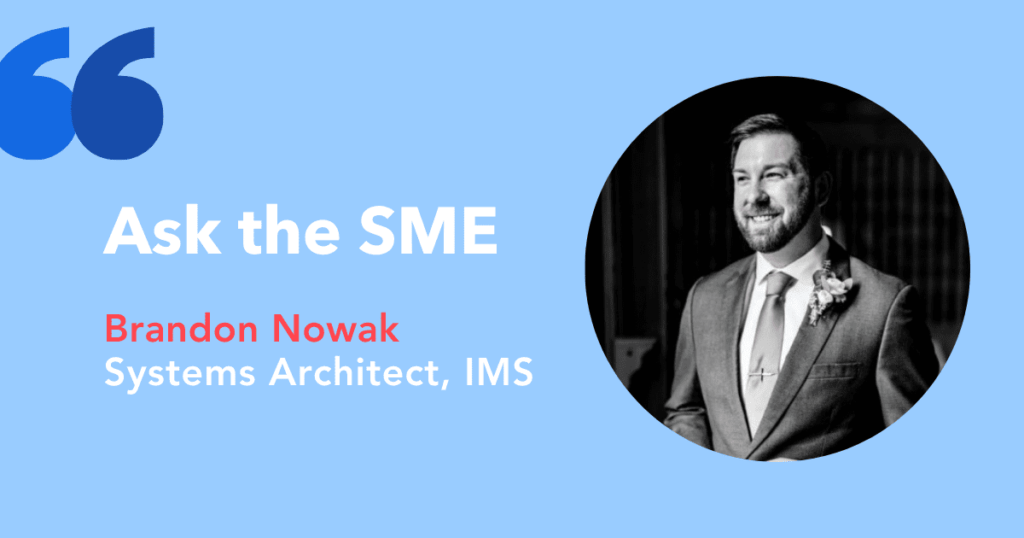
- What specific technical skills are needed to ensure data security during migration?
“A big piece is before anything gets done, to have a secure connection to the cloud, not just doing it through web browsers. We have a decent amount of clients who we work with now, and they didn’t go through best practices and everything was just generally uploaded through a web portal when they original migrated.
It’s not terrible, but not the best case scenario. Normally anything that we do is set up with a secure Edge Gateway first, and then move traffic through it. That way we can verify that only the data that needs to go there goes there, and it’s not just thrown out to a random public IP out in the internet.”

How Training Assists in the Migration Process
Navigating the complexities of cloud migration without adequate expertise can bring risks that can hinder successful implementation. However, effective training remedies this by providing the necessary skills and knowledge to overcome challenges and ensure a seamless transition to Azure.
Here’s how proper training assists in the migration process:
- Risk Mitigation: Proper training enables your team to identify and address potential risks early in the migration process, minimizing the likelihood of errors and downtime.
- Optimized Performance: Well-trained personnel can leverage Azure’s features and functionalities to optimize system performance, which ensures efficient operations and a positive user experience.
- Enhanced Security: Training empowers your team to implement robust security measures and best practices to safeguard sensitive data.
- Smooth Transition: Training equips employees with the skills needed to navigate the complexities of Azure migration, facilitating a seamless transition without disruptions to business operations.
We asked our SME, Brandon:
2. What training would you recommend for in-house staff involved in Azure migration?
“Generalized training would be really anything off of the Microsoft Learn page. It’s pretty comprehensive. There’s in-house labs, actual training paths with pretty decent documentation and visualization, as well as most of their subject matter.
The free Microsoft Learn courses are normally between 30 minutes to an hour per video with a couple videos out there that are decently comprehensive for a high level top view.
It gives you at least the key concepts, and let’s you know here’s the kind of technology that you’re going to run into as well as goes through the generalized process of either deploying or generally managing from a high level.”
While training is an effective way to mitigate certain risks, letting an experienced MSP (Managed Service Provider) handle the migration may be the best option to ensure panoramic security measures, total compliance, and hands-on day-to-day cloud management.
To learn more about how to simplify your Azure setup, check out our article on ‘Azure Simplified: A Cloud Computing Guide for SMBs.’
4 Steps to Training Your Team for Azure Migration
Now that you know what a skill gap for Azure Migration entails, let’s cover the 4 key steps to approaching this process with proper training.
1. Assessing Current Skills
Assessing your team’s current skill set is the first step before tackling the Azure migration training. Take stock of their familiarity with Azure services, like virtual machines, Azure SQL Database, and Azure Functions. Identifying any gaps in knowledge or experience ensures a targeted approach to training and addresses your team’s specific needs.
2. Developing a Training Plan
Once you’ve identified the skill gaps, develop a comprehensive training plan tailored to Azure migration needs. Start by setting clear objectives and determining the learning paths that are most relevant to your team’s role and responsibilities. Incorporate a mix of hands-on exercises, workshops, and theoretical learning to ensure a well-rounded understanding of Azure migration concepts.
3. Recommended Training Resources
There are numerous reputable training resources for Azure cloud management. Microsoft Learn, for example, offers a variety of free online courses and modules on Azure basics, migration strategies, and specific services.
4. Encouraging Continuous Learning
Training shouldn’t be a one-off event. And as you probably know, IT is constantly shifting. We recommend establishing a culture of continuous learning and development within your team. Provide access to additional resources such as webinars, workshops, and community forums so team members can expand their knowledge and stay updated on the latest Azure developments.
Once you get your plans together, create a mapped timeline.. Something like this would be beneficial so everyone understands the timeline and pieces:
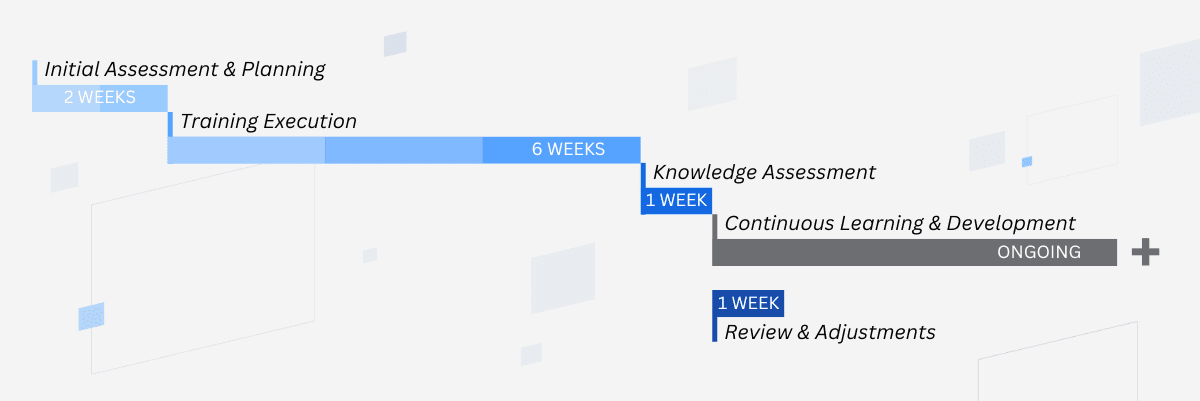
Is it Best to Let an MSP (Managed Service Provider) Handle Azure Migration?
While it’s an ambitious move to train your team and carefully prepare for migration, sometimes, it’s best to let a seasoned professional handle this intricate process.
We went back to Brandon Nowak to get his take on working with an MSP for migration…
3. What are the key considerations when selecting an MSP for Azure migration?
“The big thing with the MSP is going to be generally their ability to work with you, and if they’re certified to actually work within that cloud structure.
For anybody that’s just tried to poke around with pay-as-you-go or just look things up online, there are hundreds if not a couple thousand different options that you can possibly choose and it can be extremely confusing. Take machine types alone, just to spin up a regular virtual machine. There’s almost 100 different machines that you can just pick and choose each with its own cost and usage.
So the big thing is just finding somebody that knows what they’re doing, finding somebody that’s willing to work with you, give you an accurate price point, and then the other big piece is somebody that actually lays the plan out on the table.
The biggest part of any of these migrations is it’s full front-to-back architecture, scalability, and design. Just because you move some of your items out into the cloud doesn’t mean it’s great for everything.
Some people are better with hybrid, and some are ready to go to the cloud and use software as a service when needed for any of their other vendor pieces, like QuickBooks or AutoCAD or other items like that.
The other big thing is you’re to make sure that you’re really looking at the entire picture, not just, oh, I’m going to throw a couple of VMs up in Azure.
You also need to think about your networking piece, how that deals with people in the office, how it deals with people remotely, your cost optimization, how a disaster in recovery is going to work. Do you want items there in a house? Do you want it inside your region? Do you want it to be able to be replicated out and spin up?
There’s a lot of different pieces here and there, And that’s not even touching on the software and DevOps side. You really just need to find somebody that understands what you do at the core and what your end goal is at the end of the day.”
Some of the main reasons to think about working with an MSP are:
- Expertise and Experience: Seasoned MSPs with years of experience and expertise in Azure migration facilitate a smooth transition—minimizing the learning curve typically faced by in-house teams.
- Reduced Risks: MSPs understand potential risks in Azure migration and effectively mitigate them, which minimizes downtime or disruptions to business operations.
- Comprehensive Security Measures: Trained MSPs implement robust security measures to safeguard sensitive data and ensure regulatory compliance throughout the migration process.
- Total Compliance: MSPs thoroughly understand industry regulations to safeguard your Azure migration and adhere to all necessary standards to avoid potential litigation.
- Hands-on Day-to-Day Management: MSPs provide ongoing support and management of Azure services, allowing your internal team to focus on core business activities.
Conclusion
We’ve unpacked the steps to ensure project success, from defining key roles to leveraging external expertise. Now, it’s time to take action and prepare your team for the challenges ahead.
By investing in training and proactively educating your team on cloud computing principles, you can facilitate a seamless transition to Azure.
On the other hand, you can hire seasoned professionals to handle the migration and manage ongoing tasks, so your team isn’t burdened with tasks outside of their wheelhouse.
Still have questions? Schedule a consultation with IMS Solutions and kickstart your Azure migration today!
